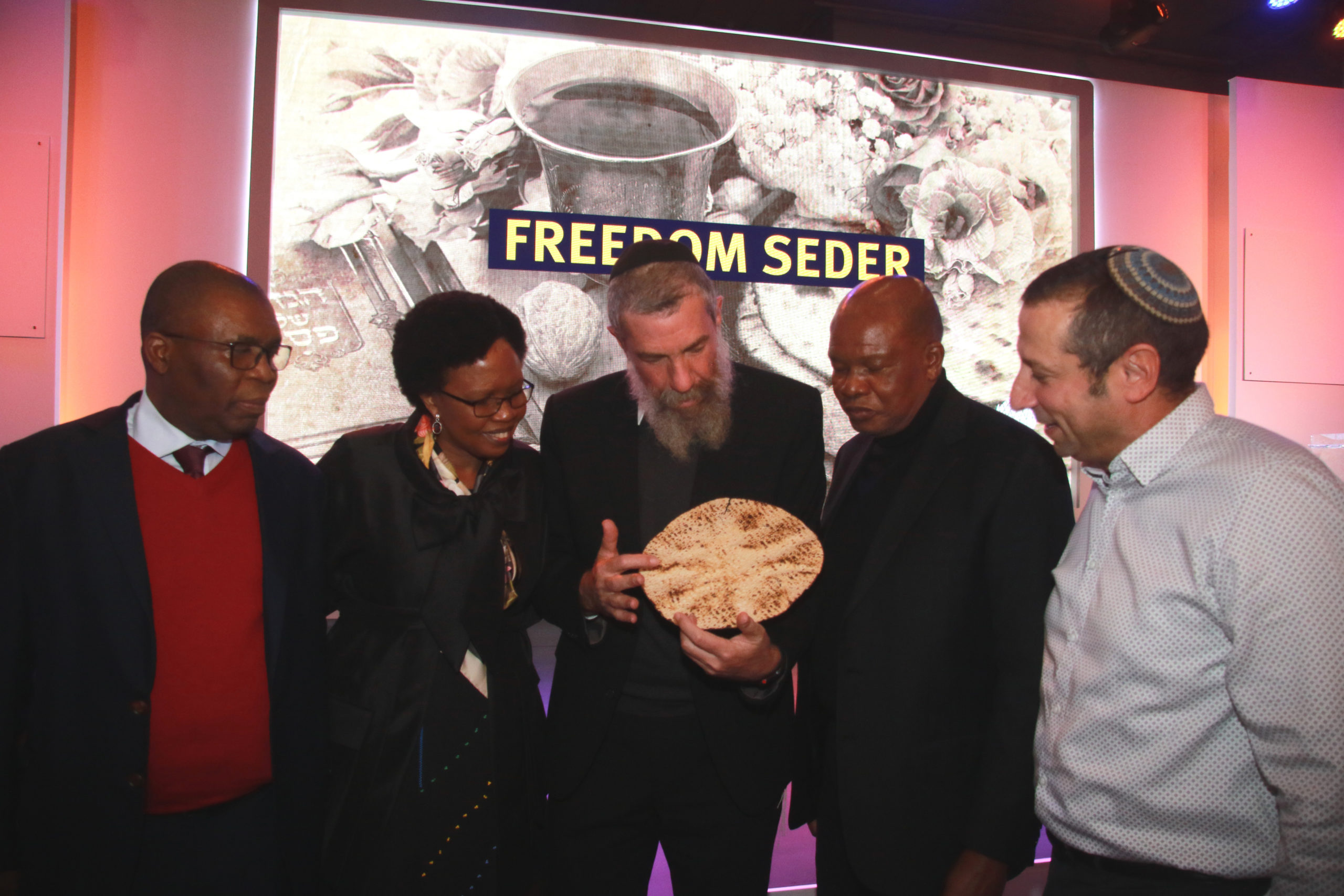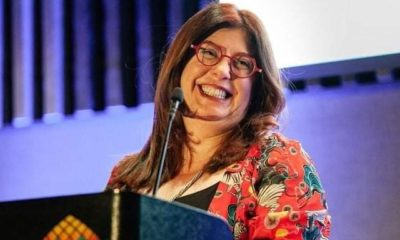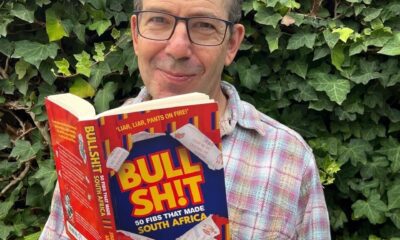
Featured Item

Freedom seder celebrates Mensches in the Trenches
In South Africa, April is Freedom Month, celebrating the election on 27 April 1994 that ushered in democracy. This year, Pesach, Easter, and Ramadan all occur in April, providing an ideal opportunity to reflect on what freedom means for South African Jews, Christians, Muslims, and beyond.
On 12 April, the South African Jewish Board of Deputies (SAJBD) did just that, hosting a Freedom Seder at The Empire in Parktown, with a spectacular view of the Brixton Tower and western Johannesburg at sunset. Due to the COVID-19 lockdown, this is the first time in three years that the SAJBD was able to hold this special seder. More than 100 people attended from the Jewish community, government, political parties, other religious organisations, foreign embassies, and the media.
SAJBD National Director Wendy Kahn said, “Pesach is usually in March, which is Human Rights Month. It was so important to be able hold the seder again this year, especially in Freedom Month.”
SAJBD Vice-President Mary Kluk explained Ha-Lachma, the Aramaic prayer that intones, “Whoever is hungry, let him eat, whoever is needy, let him come celebrate Pesach.” She highlighted that the SAJBD had facilitated the transfer of more than R20 million to “people who felt forgotten” in South Africa during the pandemic, in all nine provinces, and more than R500 000 for relief in Ukraine.
Rabbi David Hasdan emphasised the “experiential learning” imbedded in the seder, which appeals to all our senses. He stressed the importance of the seder taking place in the home, “the building block of education”, as parents pass down the story of the Exodus and the values it explores to their children.
He held up a piece of matzah baked in Ukraine, “the breadbasket of the world”, and urged participants to think about the chaos once again engulfing Europe.
Each attendee received a 12-page customised haggadah explaining the traditions of the seder. The four questions, the Ma Nishtana, were sung, and the symbolism of matzah, maror, and charoset were explained – unleavened bread baked in haste before leaving Egypt, the bitterness of slavery, and the mortar holding slaves’ bricks together. We each also got our own seder plate, with matzah, boiled egg, bitter herbs (not bitter in the slightest), and charoset, and a delicious seder meal.
In his address, Dr Sydney Mufamadi, national security advisor to President Cyril Ramaphosa, reflected on the new book, Mensches in the Trenches: Jewish foot soldiers in the Anti-apartheid Struggle, written by Jonathan Ancer. “It spotlights the history of some Jewish South Africans involved in the struggle for democratic change in South Africa,” he said. “Their forebears lived in the ghettoes of Europe; my forebears lived in the ghettoes of South Africa, in the townships, the native reserves, the homelands.”
Mufamadi spoke of how these heroes were hounded by the apartheid regime and its security police. They faced banning orders, arrest, and exile. “They had a shared fundamental antipathy to injustice,” he said, noting how he was groomed for service to his country by some of them.
“We owe it to their memory to mobilise in defence of democracy,” Mufamadi said. “A reset is urgently necessary, and it can’t be the sole project of the political class. Rebuilding South Africa is a permanent work in progress. It requires all hands on deck.”
On what he termed “the Russia-Ukraine debacle” he said South Africa’s position was “misrepresented” and that it desperately wanted a settlement to the conflict and robust debate to flourish. He said South Africa valued “pluri-vocal discourse” on international affairs. “We can’t have a world order built on the basis of exclusion,” Mufamadi said.
In the words of social activist Leonard Fein quoted in the special haggadah, “For all the reversals and all the stumbling-blocks, for all the blood and all the hurt, hope still dances within us. That’s who we are and that’s what the seder is about. For the slaves do become free and the tyrants are destroyed. Once it was by miracles, today it’s by defiance and devotion.”










